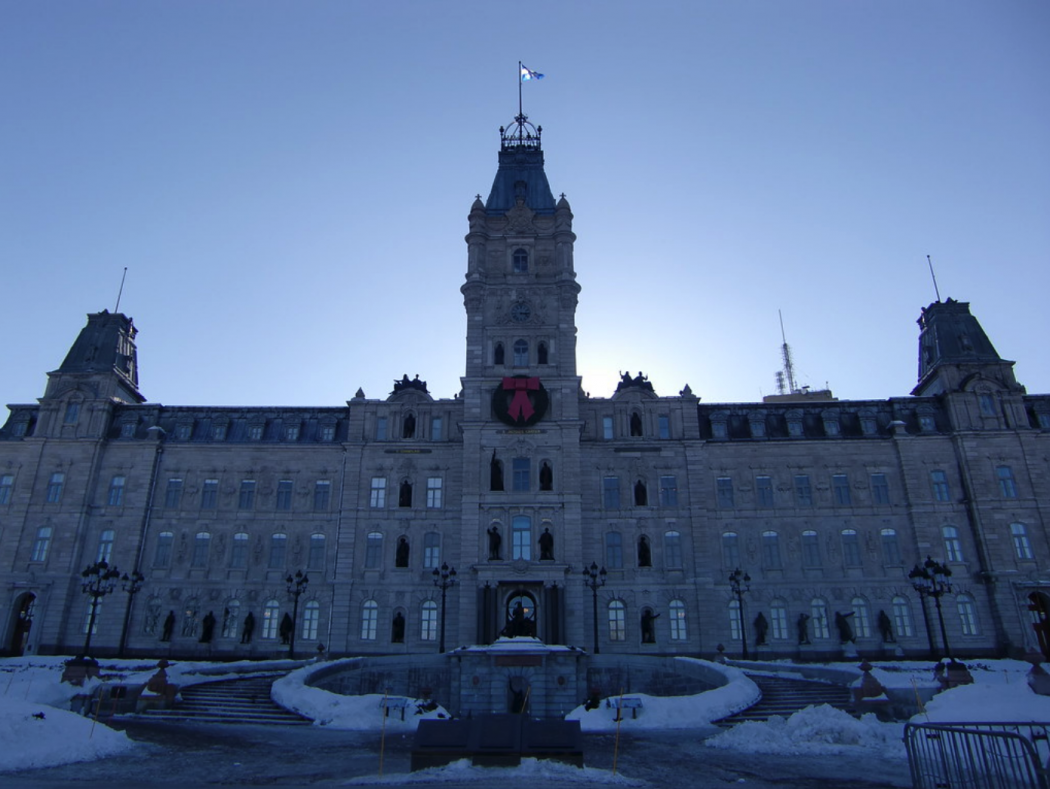On October 21, the Quebec National Assembly introduced Bill 2, “an Act respecting family law reform with regard to filiation and amending the Civil Code in relation to personality rights and civil status,” where it passed the introduction phase on the way to the second, referral for consultation. The bill has faced backlash from members of the transgender and intersex communities, some of whom called it the “most directly transphobic bill ever proposed in Quebec, and also in Canada.”
In response, the McGill Coalition Against Bill 2, Queer McGill, and the Union for Gender Empowerment sent out a joint statement on November 17 against the bill, demanding a public apology from the Ministry of Justice, the resignation of Simon Jolin-Barrette from his role as Minister responsible for the fight against Homphobia and Transphobia, and financial compensation for community organizations that responded to this crisis.
Primarily, however, the statement is directed at the McGill administration, calling for their condemnation of particular sections of Bill 2 and resources for affected McGill community members. Yara Coussa, U3 Arts student and the Arts Representative to SSMU, declared it “beyond problematic that McGill has not sent any emails to support the transgender, non-binary and intersex communities at this time. I think their silence speaks volumes.”
Arwyn Regimbal, a U1 Social Work student and member of the Queer McGill Trans Working Group, explained that this bill “proposes some of the most intense changes to the family structure in Quebec that we’ve seen in the last five to ten years.”
They further stated that some of the new measures included in Bill 2 will forcibly out transgender people on their birth certificates, as well as allow for “some sort of plausible deniability for the government to refuse to issue non-gendered IDs because these IDs were for sex and not gender.” Some aspects of this bill also discriminate against intersex people, as it requires a doctor to make a determination of sex as soon as reasonably possible, potentially increasing the risk of surgical interventions performed on infants and furthering stigma against the community.
Another aspect of this bill that caused a significant amount of resistance was section 247, which required sex reassignment surgery to change the sex designation on official documents. This decision reversed the 2015 update to the Quebec civil code which had allowed this legal change without surgery.
this bill “proposes some of the most intense changes to the family structure in Quebec that we’ve seen in the last five to ten years.”
Cal Pease, a U3 Science student and the co-leader of the Queer McGill Trans Working Group, explains how gender affirmation surgeries “shouldn’t be a requirement at all,” and that, in general, access to health care and legally changing one’s name or sex is very challenging in Quebec. The McGill Coalition Against Bill 2 developed a chart that outlines the complicated process in Quebec, highlighting the extensive time, resources, and funds involved. While a spokesperson for the Minister of Justice has since declared that this requirement will be removed, there is still some uncertainty surrounding what parts of this bill will be implemented.
When a motion was delivered to the national assembly that obligated Simon Jolin-Barrette to make changes to the bill before the committee stage, he refused to do so. Regimbal explained how concerned they are about the “lack of transparency” and uncertainty surrounding this bill.
Pease added that “it’s hard to believe this is done without prior knowledge,” especially considering Jolin-Barrette’s appointment as the Minister against Homophobia and Transphobia, and that these issues could have been “so easily avoided by talking to anyone in the community.” Regimbal even suggests that the actions of the Minister were purposeful; by portraying the situation as “just a mistake,” Jolin-Barrette can appeal to “regressive” people with transphobic beliefs, as well as moderates who will be satisfied by his listening to feedback.
Regardless of the future of this bill, the Coalition against Bill 2 declared that “a great deal of damage has been done,” merely by its introduction in the National Assembly. Regimbal pointed out that many organizations were “hurled into a crisis and had to expend a lot of money to respond.” Coussa also explained that this bill has impacted the mental health of thousands of people in Quebec; “this might have triggered a lot of people and he, the minister, and everyone involved in that bill is responsible for the people that were distressed because of it.” She continues by stating that, “simply put, this bill proposal puts lives at risk.”
“Simply put, this bill proposal puts lives at risk.”
Referring to what the McGill community can do to prevent the passage of this bill and to support the transgender, non-binary and intersex communities, Pease says the first step is spreading awareness about the bill and being vocal about one’s discontent. Since “the government has said pretty clearly that [they] do not support your right to dignity,” they explain, how important it is to hear “the voices of other people who say ‘no, this doesn’t represent what we believe in Quebec [or] how we feel about these communities, we support you.’”
The McGill Coalition Against Bill 2 Campaign has been tabling around campus, providing educational information on the bill and resources for trans, non-binary and intersex students. These efforts are intended to put pressure on both the National Assembly and the McGill administration to take action.
The coalition highlights the importance of listening to trans, intersex, and non-binary voices at a time when their communities are at risk. Coussa stresses that the McGill administration still has time to reach out and ask how to help those persecuted by Bill 2, and suggests McGill set up a committee that centers the voices of the trans, non-binary, and intersex communities on campus. Pease further states that while “there’s some really wonderful advocacy and work on campus,” these efforts aren’t “being listened to and reflected back by the administration.”
Ultimately, the impact of this bill has shown how, as Coussa explains, “the people in power need to highlight the voices of trans people.”
The following organizations can provide support and community to transgender, non-binary and intersex students:
Trans Lifeline: 877-330-6366
Keep.meSAFE (24/7 access to licensed counsellors available to all McGill students.)
Crisis Text Line: Text ‘CONNECT’ to 686-868








